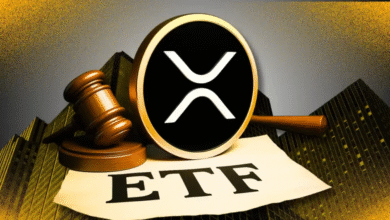Brazil Bitcoin Reserve Proposal Dismissed by Central Bank

Brazil Bitcoin Reserve is drawing significant attention as the nation grapples with the complexities of integrating cryptocurrencies into its financial landscape. Recently, the Central Bank of Brazil voiced concerns over proposed legislation that could allow the bank to allocate a portion of foreign reserves to Bitcoin. Advocates argue that establishing Bitcoin as a reserve asset could position Brazil as a leader in the cryptocurrency space. However, critics point out the potential risks associated with cryptocurrency, emphasizing that Bitcoin’s volatile nature may jeopardize the stability of national reserves. As the debate unfolds, the implications for Brazil’s financial strategy and adherence to Bitcoin legislation remain at the forefront of national discussions.
The emerging conversation surrounding a Brazilian strategic cryptocurrency reserve is capturing the nation’s fiscal imagination. With potential legislation aimed at authorizing the Central Bank to invest in Bitcoin, the dialogue is rich with differing viewpoints. Proponents believe that incorporating digital assets like Bitcoin could transform Brazil’s standing in global finance, positioning it as a progressive player in the ever-evolving landscape of digital currencies. Conversely, there are substantial concerns about the ramifications of such a move, given the inherent cryptocurrency risks and regulatory uncertainties. As lawmakers deliberate on this pivotal issue, the prospect of Bitcoin as a legitimate national reserve warrants careful consideration.
Central Bank Brazil’s Concerns About Cryptocurrency Risks
The Central Bank of Brazil has raised significant concerns regarding the potential implementation of a Strategic Bitcoin Reserve, citing various cryptocurrency risks that could jeopardize the nation’s economic stability. During the recent congressional hearing, central bank officials emphasized that the inherent volatility of bitcoin makes it a precarious addition to Brazil’s foreign reserves. With the current state of global economics, any fluctuation in bitcoin’s price could lead to a substantial financial burden for the country, undermining the stability that traditional reserve assets provide.
Furthermore, the lack of established regulations surrounding cryptocurrencies poses additional uncertainty. Central bank representatives pointed out that the existing financial legislation does not prepare Brazil for the complexities introduced by incorporating a digital asset like bitcoin into its reserve strategy. They argue that this unpredictability could expose the nation to unforeseen risks, especially if the legislation permits holding a significant percentage of reserves in such a volatile asset.
Impact of Bitcoin Legislation on Brazil’s Financial Strategy
The implications of the proposed bitcoin legislation extend beyond mere asset allocation; they touch upon the fundamental future of Brazil’s financial system. As the government debates Bill 4501/2024, key stakeholders are weighing the potential benefits of adopting bitcoin as a reserve asset against the accompanying risks. Supporters, including lawmakers like Pedro Guerra, argue that embracing bitcoin could position Brazil as a forward-thinking economy, capturing the benefits of technological evolution in finance.
However, this optimistic outlook must be tempered by the fact that adequate frameworks are lacking in Brazil to effectively govern the use of bitcoin within the country’s financial apparatus. Should lawmakers approve the bill, the need for robust regulatory structures to mitigate cryptocurrency risks will become paramount. Ensuring that necessary safeguards are in place is essential to protect not only the government’s assets but also the wider populace from the uncertainties that cryptocurrencies can bring.
The Debate Over Bitcoin as a Reserve Asset in Brazil
The discussions surrounding the potential inclusion of bitcoin as a reserve asset in Brazil have ignited a fervent debate among lawmakers and economic experts. On one side, the Central Bank of Brazil cautions against the adoption of bitcoin, arguing that it is fundamentally incompatible with the current financial system. The argument hinges on the asset’s classification by institutions like the IMF, which positions bitcoin more akin to commodities than traditional reserve currencies. This perspective underlines the risk management concerns inherent in treating bitcoin as a stable reserve asset.
Conversely, proponents of the legislation believe that adopting bitcoin could serve as a significant growth opportunity for Brazil. By diversifying the nation’s reserves, Brazil could enhance its financial resilience and leverage bitcoin’s potential to improve overall economic dynamics. This discussion is pivotal, as lawmakers must balance innovation with risk management to determine the best course forward for Brazil’s fiscal future.
The Role of the Central Bank in Brazil’s Cryptocurrency Landscape
The Central Bank of Brazil plays a crucial role in shaping the country’s cryptocurrency landscape amid increasing interest from both government and private sectors. As bitcoin legislation continues to evolve, the central bank’s stance remains pivotal in guiding the direction of future cryptocurrency policies. Its cautious approach reflects a broader need for a systematic framework to evaluate, regulate, and potentially integrate digital currencies like bitcoin into the financial ecosystem.
Experts argue that for Brazil to successfully navigate the risks associated with bitcoin and other cryptocurrencies, the Central Bank must establish clear guidelines. These should address issues ranging from anti-money laundering measures to fostering consumer protection within the cryptocurrency space. Without such regulations, the integration of bitcoin into Brazil’s economy could lead to adverse outcomes, jeopardizing the banking system’s overall integrity.
International Perspectives on Brazil’s Bitcoin Adoption
Globally, the adoption of bitcoin as a reserve asset is a hotly debated topic, with varied reactions from central banks around the world. While Brazil’s Central Bank holds a conservative view, 3% of global central banks are reportedly exploring the integration of bitcoin into their monetary policy frameworks. This stark contrast places Brazil in a unique position where it must decide whether to follow international trends or prioritize safety and stability in its financial strategy.
This international perspective on bitcoin adoption raises questions about Brazil’s economic competitiveness on a global scale. Countries that successfully integrate cryptocurrencies into their financial systems may gain a strategic edge, especially in the realms of trade and investment. Hence, Brazil must consider not only the internal implications of passing bitcoin legislation but also the broader effects on its standing within the global economic arena.
Strategic Bitcoin Reserve: Perspectives from Economic Leaders
Economic leaders in Brazil are divided on the potential implications of establishing a Strategic Bitcoin Reserve. On one hand, advocates for the reserve point to the advantages of innovation and financial agility that bitcoin could introduce. Pedro Guerra’s stance reflects a transformative vision for public finances, suggesting that embracing cryptocurrencies may revolutionize Brazil’s economic engagement with the world and enhance its position as a significant player in the global market.
On the other hand, many economic experts urge caution, echoing the sentiments of the Central Bank. They highlight that increased involvement in the cryptocurrency sector could lead to substantial financial exposure and instability. The discourse indicates a crucial turning point for Brazil: balancing the embracing of cryptocurrency advancements while safeguarding its economic integrity is an ongoing challenge that leaders must navigate.
Future of Bitcoin Legislation in Brazil: What Lies Ahead?
As the discussions around bitcoin legislation in Brazil progress, the future remains uncertain. Lawmakers are tasked with the critical job of evaluating the potential risks and rewards of incorporating bitcoin into the country’s reserves. Given the mixed reactions from the Central Bank and pro-bitcoin advocates, finding common ground may prove challenging. Future hearings will likely delve deeper into the practicalities of implementation and the regulatory requirements needed to ensure stability.
Moreover, the impact of global financial trends on Brazil’s decision-making process cannot be overlooked. As other nations experiment with cryptocurrencies, Brazil must remain vigilant, assessing international developments while addressing its own unique economic conditions. Continuous dialogue within government and between stakeholders will be essential in shaping the policies that define Brazil’s cryptocurrency trajectory.
Bitcoin as an Emerging Financial Instrument in Brazil
The emerging status of bitcoin as a financial instrument continues to provoke varying reactions in Brazil’s financial landscape. While traditionalists at the Central Bank view bitcoin as a non-financial and non-produced asset, its potential as an innovative financial tool cannot be disregarded. As digital currencies gain traction globally, Brazil faces the challenge of defining its own approach to innovation in finance.
Adopting bitcoin as an emerging financial instrument requires careful examination of its utility and risks. Stakeholders need to engage in comprehensive studies to assess how such a shift could impact Brazil’s economic framework. Emphasizing education and awareness around cryptocurrency will be crucial, helping both policymakers and the general population understand the implications of transitioning to a more technologically advanced financial system.
Legislative Dynamics of the Bitcoin Reserve Proposal
The legislative dynamics surrounding the Strategic Bitcoin Reserve proposal reflect the complexities of integrating cryptocurrency into Brazil’s existing financial architecture. As the bill moves through various stages of review and debate, its fate rests in the hands of Congress, where discussions on balancing innovation with risk management are pivotal. Engaging with a diverse range of stakeholders, from economic experts to the cryptocurrency community, will shape the outcomes of these legislative discussions.
Additionally, public sentiment will play a crucial role in guiding lawmakers as they consider the potential consequences of allowing bitcoin to become a reserve asset. As debates unfold over the next few months, the South American nation will be watching closely to see how these dynamics will shape the future of its financial policies and stance on cryptocurrency. The outcome could signal a watershed moment for Brazil in the global cryptocurrency landscape.
Frequently Asked Questions
What is the Central Bank of Brazil’s stance on incorporating Bitcoin into its reserves?
The Central Bank of Brazil has expressed strong opposition to incorporating Bitcoin as a reserve asset. During a recent congressional hearing, Luís Guilherme Siciliano emphasized that adopting bitcoin would increase risks to Brazil’s foreign reserves portfolio and that bitcoin does not meet the requirements to be considered a viable reserve asset according to existing legislation.
How does the Central Bank Brazil classify Bitcoin in relation to reserve assets?
The Central Bank of Brazil classifies Bitcoin as a non-financial, non-produced asset under IMF guidelines, likening it to capital instruments like land and mineral resources. This classification implies that Bitcoin cannot be treated as a traditional financial instrument or a reserve asset, hence, its adoption poses additional risks to Brazil’s reserves.
What are the risks associated with Brazil adopting Bitcoin as a reserve asset?
According to the Central Bank of Brazil, adopting Bitcoin as part of the foreign reserves introduces significant risks due to the inherent volatility and uncertainty associated with cryptocurrencies. This includes potential impacts on the country’s financial stability and reserve management.
Is Brazil considering any Bitcoin legislation related to its central bank reserves?
Yes, the Brazilian Congress is currently debating Bill 4501/2024, which proposes to allow the Central Bank to allocate up to 5% of its foreign reserves in Bitcoin. However, the Central Bank has cautioned against such integration due to the risks involved.
What arguments are presented by proponents of Bitcoin in Brazil?
Proponents, like Pedro Guerra of the Ministry of Development, argue that adopting Bitcoin could revolutionize Brazil’s public finances and position the country as a strategic leader in the global economy. They believe that incorporating Bitcoin may realign economic incentives and enhance Brazil’s role in international finance.
What percentage of central banks are exploring the use of Bitcoin as a reserve asset?
Currently, only about 3% of central banks globally are considering Bitcoin as a reserve asset. The Central Bank of Brazil has indicated that this statistic further underscores the rarity of such adoption among financial institutions.
What should investors know about cryptocurrency risks in relation to Brazil Bitcoin Reserve discussions?
Investors should be aware that discussions regarding Brazil’s Bitcoin Reserve involve significant cryptocurrency risks, such as market volatility, regulatory uncertainty, and the implications of classifying Bitcoin outside standard financial instruments. The stance of the Central Bank of Brazil reflects these concerns and the potential impact on national financial security.
| Key Point | Details |
|---|---|
| Central Bank’s Stance | The Central Bank of Brazil opposes the Strategic Bitcoin Reserve proposal, citing increased risks. |
| Legislation Details | Bill 4501/2024 proposes allowing the central bank to buy up to 5% of reserves in bitcoin. |
| Classification of Bitcoin | Bitcoin is classified by the IMF as a non-financial asset and not suitable as a reserve. |
| Current Adoption Rate | Only 3% of central banks are considering bitcoin as a reserve asset. |
| Arguments for Adoption | Pedro Guerra argues that bitcoin could revolutionize public finances and enhance Brazil’s leadership. |
| Next Steps | Lawmakers must vote to approve or reject the Strategic Bitcoin Reserve Bill. |
Summary
Brazil Bitcoin Reserve discussions highlight a critical juncture in the country’s financial strategy. The Central Bank’s reluctance to adopt bitcoin as a reserve asset stems from inherent risks and regulatory concerns. As the debate unfolds, it remains essential for lawmakers to consider both the potential benefits and drawbacks of such a revolutionary move in public finance.




